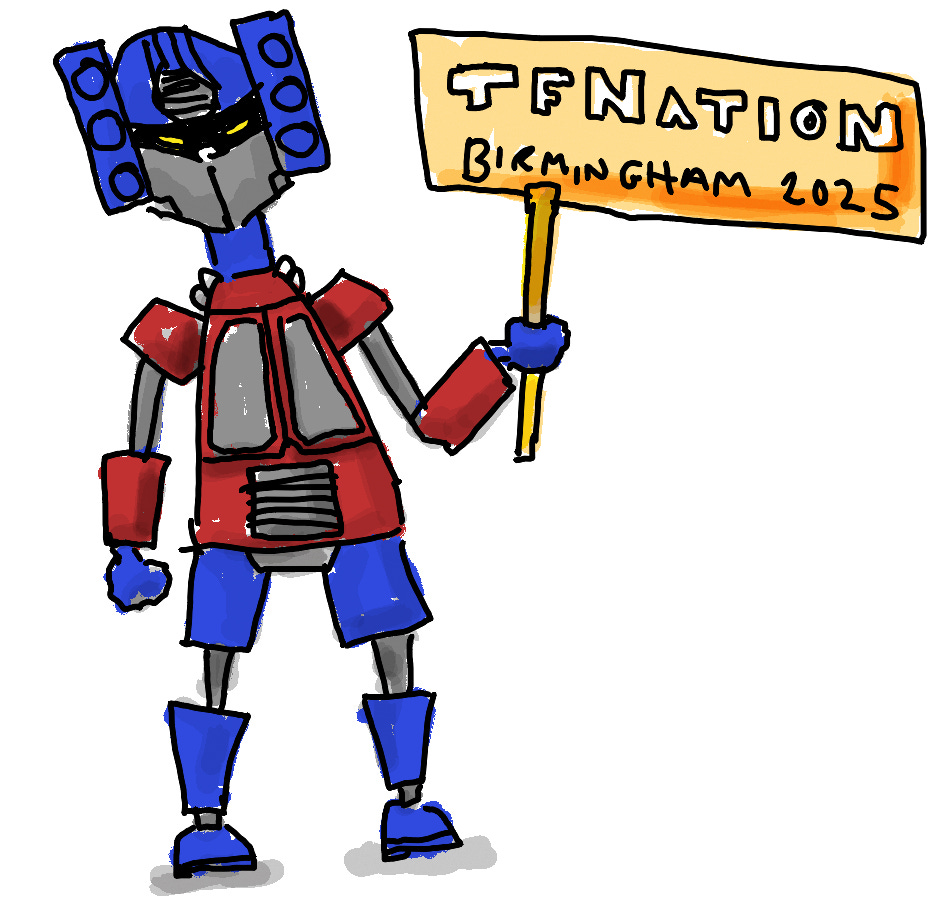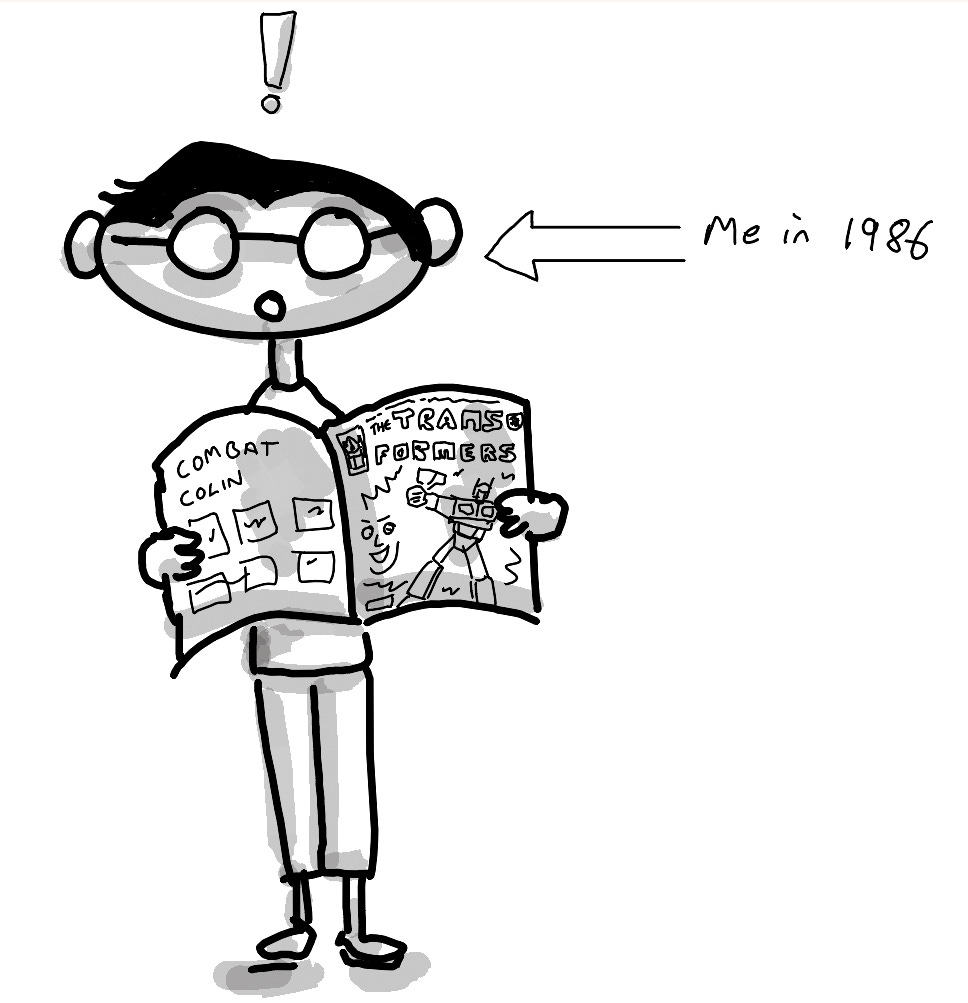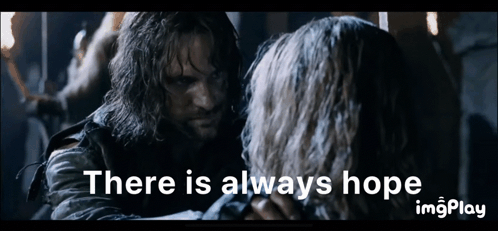“I might have found my tribe.” EasterCon keynote, 2008
Read the news and it’s easy to think that publishing fiction is a waste of time; an indulgence in a world beset by so much horror. Is being a writer a luxury we can’t afford? WELL.
A week ago I drove my 12 year old to Birmingham to attend TFNation, Europe’s largest convention based entirely on The Transformers. When I say ‘I drove my 12 year old’, what I really mean is: I convinced him to come with me (it didn’t take much).
To pretend that this wasn’t as big a deal for me as it was for him would be disingenuous. I was born in 1980, putting me at the absolute perfect age to be sucked into Hasbro’s TV show / toy / comic extravaganza for young boys. Robots that transformed into vehicles! I was three years old when they first appeared in toy shops. I was five when Transformers: The Movie hit cinemas in 1986. I was 10 when the comic finally wrapped up in 1991.
Simon Furman and Transformers UK
Along with creating a permanent interest in cool robots, my childhood obsession was formative in other ways. Simon Furman’s work on the 1980s comic in particular introduced my brain to long form serialisation, and the idea of a story told over many years. Bear in mind a lot of books I was reading at the time would have been fairly simple one-and-done adventures, or standalone series like The Hardy Boys. I very clearly remember being fascinated by Charlie and the Great Glass Elevator by Roald Dahl, specifically because it was a sequel and that entire concept fascinated my tiny brain.
The Transformers comic was something else. Furman (and the other writers, but mostly Furman) wove a complex story involving time travel, multiple dimensions and an insanely huge cast of characters across many years, building to an immense finale. The comic had violence, complex ethical conundrums, time paradoxes to make a child’s head explode, and explored the concept of death in a very real way. As has been noted many times, if the comic had been about humans rather than robots, it would have been banned by the Daily Mail.
I drifted away from Transformers in my teens, only to return in the early 2000s when I stumbled upon a bootleg CD filled with scans of the 1980s comic. I picked up occasional collected issues from Titan Books, but most of the old comic was out of print. Earlier this year I pledged to Skybound’s huge Kickstarter compendium1, which will be the first time I’ve had a legal, legitimate collection of the whole thing. I am very excited.
I can draw a line from Transformers in the 1980s to my own storytelling in 2025. As anyone who is reading Tales from the Triverse can attest, I have a penchant for long, episodic stories that combine into something greater than the individual parts. That structure comes mainly from Furman’s work, which seeped into my brain as a pre-teen and never went away.2
Finding your tribe
So, off we went to TFNation. The weekend reminded me of something the keynote speaker said at EasterCon back in 2008. To quote:
“My first Eastercon was…in 1984 -- a huge and wonderful affair. I was 23, wide-eyed and delighted by the convention. Bumptious, gawky, ransacking the dealer's room… occasionally mistaken for Clive Barker (why?) and starting to suspect that I might have found my tribe. And now, 24 years later, I'm some strange old-timery creature…[and] there seem to be an awful lot of people here the age I was at my first Eastercon or younger, an amazing amount of enthusiasm, and a lot of people who are having their first convention, and who may even now be suspecting that they might have found their tribe.”
I sat in that audience and thought yes, that’s how it feels. Back in 2008 I wasn’t yet writing consistently, and it would be a good few years before I completed my first serial, A Day of Faces. Being in the audience at EasterCon, all I could think (rather hubristically) was that I really wanted to be up on the panel itself. That was the spark that got me writing properly, and led to where I am today. I wanted to be an author.
In the years since 2008 I found my tribe, wrote some books, and I’ve even been on some panels at festivals. In the newsletter scene I’ve found a supportive and insightful writing community. In Substack, I’ve found a set of tools that have helped me publish something every week and build a readership of over 9,000 people around the world.
There’s always a catch, though. Who was the keynote speaker at EasterCon 2008, who delivered that inspirational speech?
Neil Gaiman.
Bad actors and bad tech
When Gaiman’s reputation imploded at the start of the year, I thought back to EasterCon, not to mention all of his books and TV shows and movies, and tried to reconcile the two realities. It’s the same struggle for Harry Potter fans. The age-old question of whether we can separate the author from the work, when the author turns out to be deeply problematic.
It often feels like all our heroes turn to villains, if we wait long enough.
That’s the risk of ‘finding your tribe’, of associating with a group. Humans are complex and messy and can surprise in ways good and bad; gather enough of them in one place and it’s impossible to check each individual for total moral alignment with your own views. Take any dozen people and at least a couple will be arseholes.
Which brings me to the other thing3 that’s been on my mind of late (again). The growing calls for writers to leave Substack. I nearly left in late-2023 with the original ‘Nazi controversy’ from The Atlantic, but ultimately decided to stay.4 The discourse returned in the last month following a bizarre incident5 when Substack sent a push notification to some users promoting a Nazi account6, prompting A Million Robots, one of my favourite recent newsletters — there’s the clever thematic connection! — to jump over to using Beehiiv,
It’s the same problem that we all face when using tech. The internet and digital tools have brought incredible creative opportunities and new ways to reach audiences and interact with each other. But so often there’s a gaping lack of leadership and governance, turning every interaction with tech into an ethical minefield. Over and over again, an exciting new tool appears, and is then undermined by its own maker, or by the cultish behaviour of its primary evangelists. Whether it’s Amazon, Google, Microsoft or Tesla, there are compromises at every turn. We can’t drive a car or use a phone without being compromised.
There’s no way to keep our hands clean. Sometimes it seems that the only ethical way forward is to disconnect entirely: get rid of the phone, turn off the computer and go live in a cave in the woods.
Fine, but I quite like writing, and having people read my writing, and meeting writers and readers. I want to be part of the world, despite all its flaws.
Searching for purity
There’s a very silly episode of 1990s TV scifi show Babylon 5 in which an alien killing machine goes on a rampage, destroying anything it deems to not be ‘pure’. The twist being that ideological purity is a race to the bottom, with the alien society who created the machine now extinct: after taking out the obvious enemies, it turned on its creators, none of whom could ever pass the test of ‘purity’.
Unsubtle though it may be, that episode sometimes feels like a prescient vision of what it’s like to have even vaguely left-leaning politics and be online in the 2020s. If we keep abandoning spaces which contain problematic people, in a never-ending exodus to some sort of moral perfectionist nirvana, all we’re actually doing is continually ceding ground to the worst in society. Reasonable and diverse voices are diminished, dispersed and scattered, while those we object to are solidified and made stronger. It’s a form of self-sabotage.
Maybe this is all just endgame capitalism. There’s no way to exist in the world without also being complicit in its destruction. I don’t like to accept that kind of fatalism, though.
A subtle resistance
There’s a pervasive, existential angst to being an artist in 2025. All I really want to do is write some good stories and get them out into the world; but to do so often requires interacting with ethically compromised systems and platforms. Perhaps this has always been the case, with artists having to find a way to tread the path between authenticity and ‘selling out’, and the modern tech era is simply the latest incarnation.
To go back to what Neil Gaiman said about the joys and importance of finding your tribe: the sentiment isn’t undone by his own behaviour. We can’t allow the unsavoury elements of society to dictate everything about how we think and live. The presence of unpleasant people must not drive us from every venue, every platform until we’ve silenced ourselves and there are no voices left to object.
Let’s return to the beginning. Back to TFNation in Birmingham. The atmosphere at conventions I’ve been to is usually delightful, and TFNation was especially so: welcoming, friendly, inclusive, relaxed. A whole bunch of people of all ages and genders, a broad LGBTQ+ cohort, excellent provision for anyone with limited mobility and other access needs: kids and adults and parents and artists and writers, amateurs and professionals, all gathered together to celebrate a common interest.
It felt like a model of how things used to be, and could be again. The organisers made it look easy (as always, for something to look effortless requires an immense amount of effort). TFNation wasn’t a success because of careful gatekeeping, but quite the opposite: it threw the doors open and made sure everyone was welcome. In doing so, it was a fundamental rejection of the worst tendencies of imported internet discourse. It was nostalgic and old fashioned while also being progressive and forward-thinking. It was a demonstration of what humans are like when you get them off social media, off the internet, and put them all in a big room together.
There was no gatekeeping. No ‘us’ and ‘them’. There was none of the absurd polarisation that has infected all crevices of politics and culture in the 21st century. In 2025, the casual diversity and inclusivity and simple joy on display at TFNation became an act of defiance, a subtle resistance.
Which brings me back to the question at the very start. Why be a writer of fiction in a world that has so many real problems? I think TFNation reminded me. It renewed my belief in the power of fiction to unify, and illuminate, and point the way. In times of crisis, fiction becomes more important, not less.
And all of that from a cobbled-together 1980s toyline targeted entirely at young boys.
Plus they had lots of Aerialbots and a really, really massive Metroplex that was almost as tall as my son.
Meanwhile.
Thanks for reading. There was no great productivity tip or writing insight in today’s post, no quick growth hack. No snappy take-away. It’s just my unfiltered brain, so well done for getting to the end! Writing this newsletter is a big part of how I process the world, the good and the bad. Perhaps collectively sharing some of these anxieties is good for us?
Some other reading, then:
is always worth a read, and this recent piece is an affirming thing:Something I stumbled upon at work: This speech from 2016 about the problem of applying software and systems design to all aspects of life is startlingly prescient. It’s a shame nobody listened to it, and it’s even more pertinent nearly a decade later.
“People who excel at software design become convinced that they have a unique ability to understand any kind of system at all, from first principles, without prior training, thanks to their superior powers of analysis. Success in the artificially constructed world of software design promotes a dangerous confidence.”
In far better and more exciting news,
has explained how he ended up founding a bookstore: of Everything is Amazing has just released a new course on non-fiction storytelling. To celebrate, he interviewed himself, because of course he did:I finished playing 1000xResist yesterday. I’ll probably write about it over on
.Right, that’s it for today. Thanks for reading!
$4.6million on an original goal of $40k isn’t bad.
Many of my books include the line “[person] enters the fray.” Which is a direct reference to the ‘Time Wars’ story of the OG UK Transformers comic.
Today’s newsletter is a series of unlikely segues, for which I can only apologise.
I went into more detail on why I stayed in this recent Note:
The article is, inevitably, paywalled, but you get the gist.
Also for the record, if a writer does decide to use a different set of tools, that’s totally their call. I thought a lot of the performative departures in 2023/early-2024 were extremely cynical, but that certainly doesn’t apply to Alec’s work on A Million Robots. Which I highly recommend if you’re into stompy robots.











So, I had the opportunity to read earlier drafts of this while Simon was working it out. I don't think I gave any particularly useful notes or advice, but I've had time to mull over the topic, thus I walk in ready to drop...
THE INDIVIDUAL IS NOT THE TRIBE.
Humans have had ways of dealing with the disruptive, and the malcontent, ranging from shunning to expulsion, incarceration and beyond.
If there's a good thing going on and there's a cancer trying to take root, slice it out. Perhaps with regret, but with determination. Preserve the healthy tissue and grow stronger.
Otherwise, this essay once again brushes up on the "art vs artist" debate which hasn't quite (yet) been the main thesis for one of these newsletters. Others' opinions may vary, but I long ago reached my conclusion, which is I cab quite easily seperate both.
In the case of an artist still living and in copyright, once said artist's problematic ways come to light I can choose to no longer purchase new (or unowned) works by that creator, but I'm not going to throw away works I already own, or choose not to enjoy the creation.
Instead I merely mourn that Orson Scott Card, Larry Niven, JK Rowling, et.al. fail to live up to the standards set by their own protagonists. In the case of Card, Niven and Rowling I can hope they take the lessons of their own art and cease doing harm, while enjoying what I own and have read, while not purchasing more from them.
Sadly, in some cases, the creator's problems are what lead to the creation of the art. H.P. Lovecraft was a horrible racist. His fear of, and inability to come to terms with *the different* drives the entire Cthulhu mythos - a bleak, uncaring universe with soul shattering creatures who aren't evil or malevolent, but *indifferent.* Even Tolkien's sagas. Yeah, he built his dwarfs off stereotypes of Jews - but if one has read the creation myths in the Silmarrillion, it's pretty damn obvious he just wrapped Dante up in a new T-shirt and his own Catholicism is on every page. Yet these author's biases and fears are what inform their work and make them great. These biases may not even be immediately apparent to a modern reader (OK, Lovecraft's racism is obvious).
That's how I've reconciled things. Other's mileage may vary.
Although in the case of Rowling, well, I never bought the books. Guess she got a few cents from my movie tickets. Harry Potter was a book franchise I borrowed and was moderately entertained by, and a film series I saw as I dated (and later married one of) a string of women who were great fans.
But I digress.
Key points. If I'm around someone toxic, I'll try to see if I can educate and correct. If that fails, I don't need them in my life. If I appreciate a creative work and later discover the creator is slime, I still can enjoy the art, but will no longer do anything to reward the creator.
It took until my 40s to figure this out.
Thank you for the shout-out!
Oh boy, yes, the "ethical purity" thing. Sigh. I guess the narrative that Substack equals Nazis is not going to go away, and it's probably only a matter of time before the next s**tstorm around it. I post versions of some of my stories on social media, so I get a fair bit of "ugh, SUBSTACK" when I do (and I've recently had a couple of paid subscriber cancellations over it).
The last comment I got was:
"This is a fantastic thread and I am very tempted to subscribe but - have you considered moving away from substack? The latest news has me very not interested in supporting that platform. I have no idea how difficult that would be for you"
This was my reply at the time:
>>"Thank you! Appreciate you saying this - I've had other folk "suggesting" the same thing, nowhere near as politely. 😄
>>It's tricky, yes: there are science comms I really admire on the platform, & others that have left because of past controversies & some truly awful people with publications there...
>>As for myself, I'm not yet ready to make the decision to make the leap elsewhere, which I'd hopefully do also for practical reasons (better functionality elsewhere) - but I respect the folk in science (some who are friends) who consider the whole platform a total no-no and act accordingly.
>>The other thing about sticking around on a platform with anti-science (and anti-democratic) voices so active on it is you can push back against them from within that system. There are folk on Substack with big followings doing that and I respect it very much. (I'm not really one - I'm small-scale.)
>>All this said - if anyone wanted to subscribe and read my newsletter totally for free, and never commit to giving me a single penny until I was elsewhere, I can respect that too. 😁"
I'm still not sure there is any "right answer" to all of this, and I don't have much patience with the extremely self-righteous yelling at Substack writers that they're endorsing Nazis by staying on Substack. Anyone claiming obviously complicated things are that simple and displaying such a lack of empathy has more problems than yelling at random strangers.
I appreciate how Mike Miller brought up Orson Scott Card in another comment, because that's such a great example of an author whose work I still respect even though I find his personal religious beliefs absolutely unpalatable. But generally, it's so hard to separate the creator from their work! I mean, I still love the first Avengers film on every level and I still love Firefly, and - they're both Joss Whedon. And for a more British example, I recently enjoyed watching the first few seasons of Coast, even though Neil Oliver has now turned into a conspiracy-trumpeting twit on GB News...
One example in fsf: I never really liked the work of David Eddings ("The Belgariad") despite multiple attempts at reading his fantasy trilogies - but I do wonder how it must affect his actual fans, which still number in the millions, when they learn he was a convicted child abuser. From Wikipedia:
"Eddings and his wife Leigh pled guilty to 11 counts of physical child abuse of their adopted children. They adopted one boy in 1966, Scott David, then two months old; subsequently, the couple adopted a girl between 1966 and 1969. In 1970, the couple lost custody of both children and were each sentenced to a year in jail in separate trials for extensive child abuse of both children. Though the trial and conviction of both David and Leigh Eddings was reported in the local press, the news was not widely disseminated, as Eddings was an obscure academic at the time. The conviction was consequently not remarked on after Eddings became a well-known author over a decade later; it was not widely publicly revealed until after his death."
Also, re Gaiman - did you see the allegations that he cribbed much of The Sandman from the hugely-underappreciated Tanith Lee? https://dmrbooks.com/test-blog/2025/3/2/neil-gaiman-vs-tanith-lee-when-the-sandman-robbed-the-empress-of-dreams In my case, I recently had a go at reading American Gods, after the allegations came out, and the story came across as so nasty and cruel that I couldn't continue. Maybe that was influenced of what I now know about its author?
So - I reckon it's a personal choice, and always a fiendishly complicated one. Chasing purity is foolish at best, malicious hypocrisy at worst.